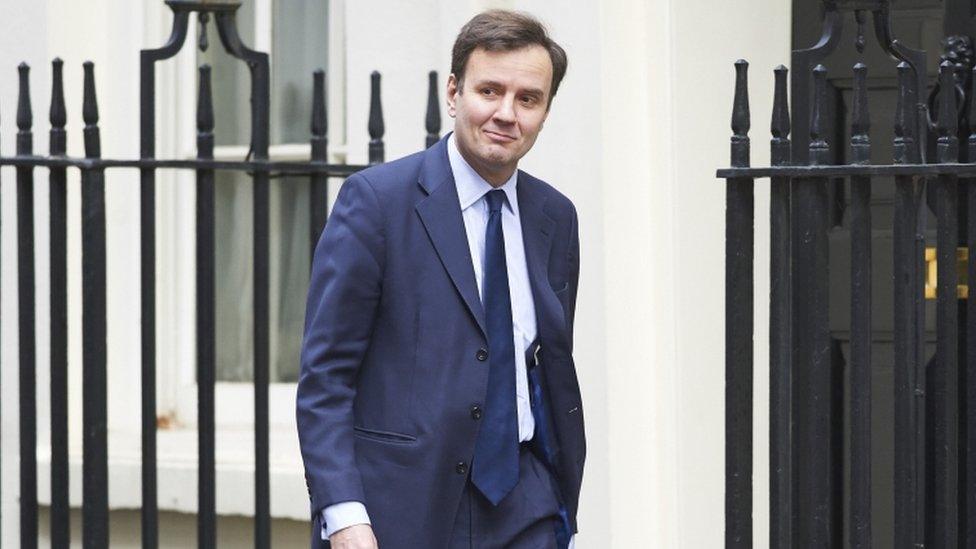Fiscal framework deal 'seems within reach', minister tells Lords debate
- Published

New fiscal rules need to be agreed between the UK and Scottish governments ahead of extra financial powers heading to the Scottish Parliament
A deal on the financial arrangements that will underpin Scotland's new devolution powers "seems within reach", a UK government minister has said.
Scotland Office minister Lord Dunlop was speaking as the House of Lords debated the Scotland Bill.
Talks between the UK and Scottish governments on the fiscal framework continued over the weekend, although no agreement has yet been announced.
Lord Dunlop said the talks were at a "sensitive and critical point".
But he told peers that "significant progress" had been made.
Peers agreed to go ahead with detailed scrutiny of the new powers contained in the Scotland Bill despite the lack of agreement on the fiscal framework.
Tory former Scottish secretary Lord Forsyth had called for the final day's committee stage debate to be delayed until the fiscal framework was published.
But he withdrew his demand after opposition from both the government and Labour.
Labour's former chancellor, Lord Darling, said it was "deeply regrettable" that parliament still did not know what the fiscal framework was going to look like.
Lord Darling said there were "massive considerations" to take into account in determining tax and welfare.
He added: "I struggle to see how it's going to work. If we don't get it right, we could be simply storing up problems for the future, providing rich and fertile grounds for those who seek out grudge and grievance as a way of life."
Protracted discussions
Scottish Finance Secretary John Swinney held talks with his UK government counterparts in London on Friday.
Mr Swinney said afterwards that progress had been made, but some "significant issues" still remained before a final deal could be agreed.
The two government have been locked in protracted discussions about how the block grant that Holyrood receives should be adjusted when new tax powers are devolved to Scotland.
Any deal must meet the principle of "no detriment" - the idea that neither the UK or Scottish governments should lose out financially simply as a result of the decision to devolve.
Mr Swinney and Scottish Secretary David Mundell are both due to appear before the Scottish Parliament's Devolution Committee on Tuesday, where they will be asked to lay out their positions.
With the Scottish Parliament being dissolved next month ahead of May's elections, MSPs on the committee had warned of "very substantial impacts" on their ability to scrutinise any proposals if talks were not concluded by 19 February.

Greg Hands has said he is not able to appear before a Holyrood committee on Wednesday
But Chief Secretary to the Treasury Greg Hands has said he will not be able to appear before Holyrood's Finance Committee on Wednesday to give evidence to MSPs about the talks.
Mr Hands, who has been negotiating on behalf of the UK government during the talks, had previously said he would be "very happy" to appear before MSPs once a deal had been reached.
In a letter to the committee, he said: "I fully intend to honour that commitment. Unfortunately, due to parliamentary business I can not attend your committee on 24 February.
"I look forward to appearing before your committee once the framework is agreed."
In response, committee convenor Kenneth Gibson told Mr Hands: "This would appear to suggest that you do not think an agreement will be reached on the fiscal framework before then."
He urged Mr Hands to reconsider, stating: "If this is indeed the case, then it is essential that the Finance Committee has the opportunity to hear from both governments as to why it has not been possible to reach an agreement."
The Scottish government has already warned it will pull the plug on the Scotland Bill by recommending MSPs veto the legislation if an agreement over the fiscal framework cannot be found.